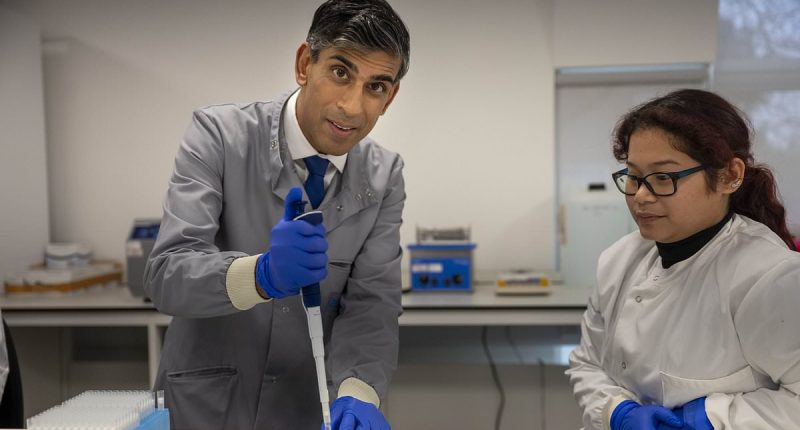Share this @internewscast.com
A British-made prostate cancer test could avoid the need for biopsies in four out of five cases, according to a study.
The EpiSwitch PSE next generation blood test uses advances in technology to identify prostate cancer, the most common form of the disease among men in the UK.
The test, made by Oxford BioDynamics, has an accuracy of 94 per cent in identifying prostate cancer, a dramatic leap compared with the standard test along, which is reckoned to be correct in only around half of cases.
Crucially, a peer-reviewed study due to be published in the Cancers medical journal, accepts the findings that up to 80 per cent of patients could potentially avoid unnecessary prostate biopsies – an often invasive procedue considered one of the biggest stumbling blocks in men going to get tested in the first place.
The study concludes: ‘Across models, up to 79.1 per cent of patients could safely defer biopsy based on PSE results, highlighting the test’s potential to reduce invasive procedures without compromising diagnostic safety.’
Dr Alexandre Akoulitchev, chief scientific officer at Oxford BioDynamics, said: ‘This study builds on our earlier robust clinical validation work which demonstrated the application of EpiSwitch PSE as a precise, minimally invasive test that empowers clinicians and patients with clarity, reduced patient risk, and improved outcomes, while easing the pressure on the diagnostic pathway.’
The paper said the innovation could effectively save the NHS significant amounts of money by reducing the amount of men sent for biopsies and MRI scans, reducing pressure on the service.
The study reckoned this translated to a saving of almost £1,000 per patient.

Former prime minister Rishi Sunak added his support to calls for nationwide targeted testing for prostate cancer when he visited Oxford Biodynamics, the firm behind next-generation blood test EpiSwitch PSE

The Conservative MP said he had got himself tested after being impacted by the number of his friends affected by the disease

National treasure Sir Stephen Fry, himself a former prostate cancer patient, has backed the Daily Mail’s campaign for a screeing programme for at-risk men

Oliver Kemp, from Prostate Cancer Research, said reducing the number of biopsies reduced stress for men
Oliver Kemp, chief executive of UK charity Prostate Cancer Research (PCR), said: ‘This study shows how smarter testing can save millions while improving care for patients.
‘Reducing unnecessary biopsies and scans means less stress for men and more capacity in the system.’
Oxford BioDynamics worked with leading researchers and clinicians at the Imperial NHS Trust, Imperial College London, and the University of East Anglia to produce EpiSwitch.
It is used following a PSA test – meaning prostate-specific antigen, identifying whether the protein levels produced by the gland are raised – and measures five markers to identify the likelihood of cancer being present.
The firm’s headquarters were visited by former Prime Minister Rishi Sunak in February this year, as he backed calls for a targeted national screening programme for men most at risk of prostate cancer.
In government, Mr Sunak announced with Prostate Cancer UK a £42 million screening trial to find ways of detecting prostate cancer earlier.
But it is hoped a national screening programme would be the most effective way to prevent unnecessary deaths.
The Mail has long campaigned for a national roll-out, a cause backed by the likes of Sir Stephen Fry, a former prostate cancer patient.
The UK national screening committee has come under increasing pressure to reconsider testing policy following the news last year of Sir Chris Hoy’s diagnosis with the terminal illness.
Prostate cancer most frequently affects black men and those with a family history. It is often symptomless, meaning early detection is crucial in stopping the disease’s spread.
Earlier this week, newscaster Dermot Murnaghan revealed he is battling stage-four prostate cancer.












